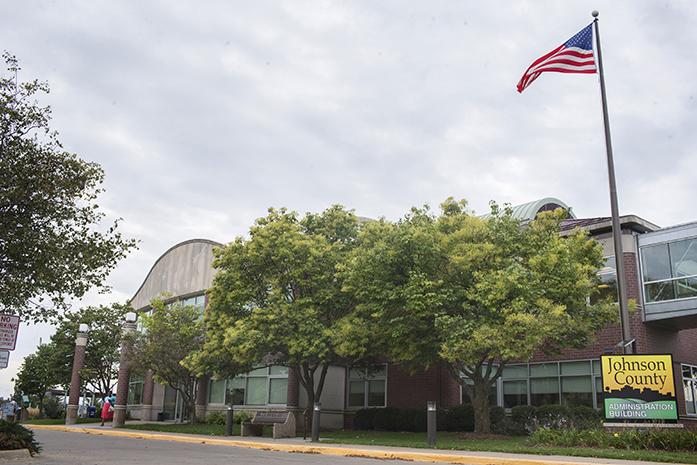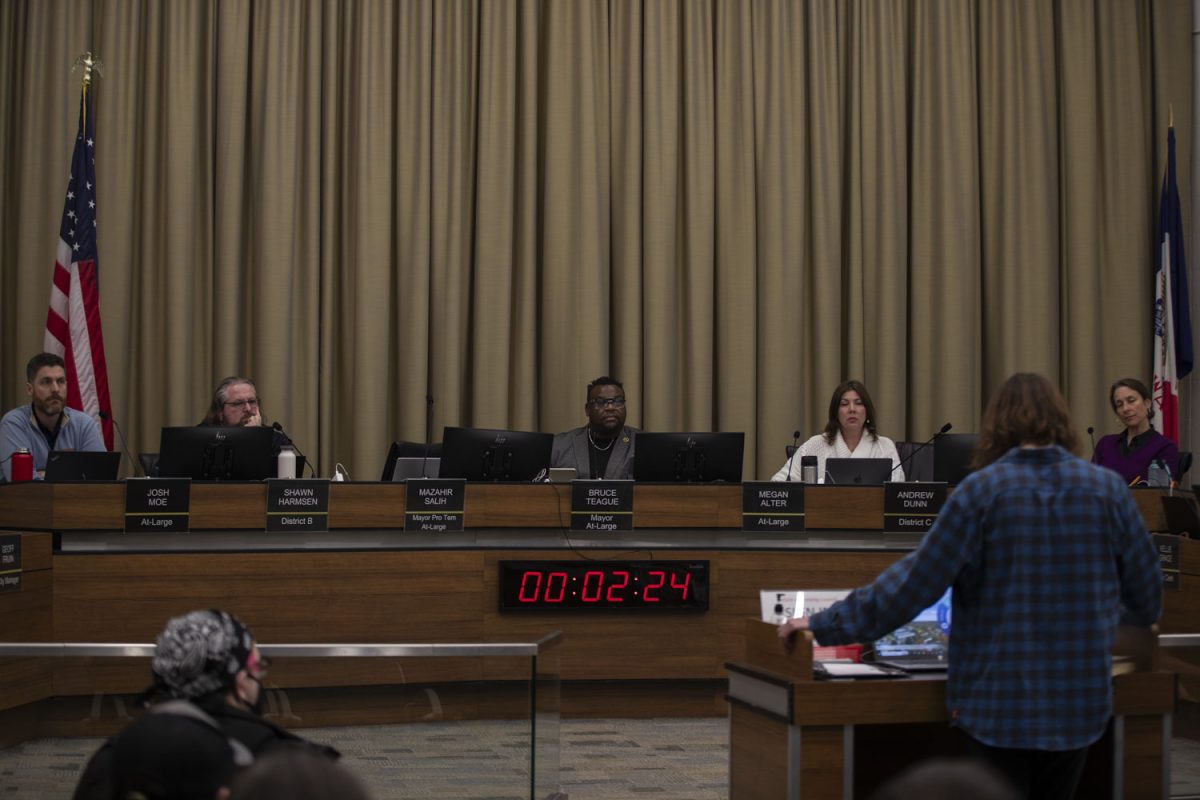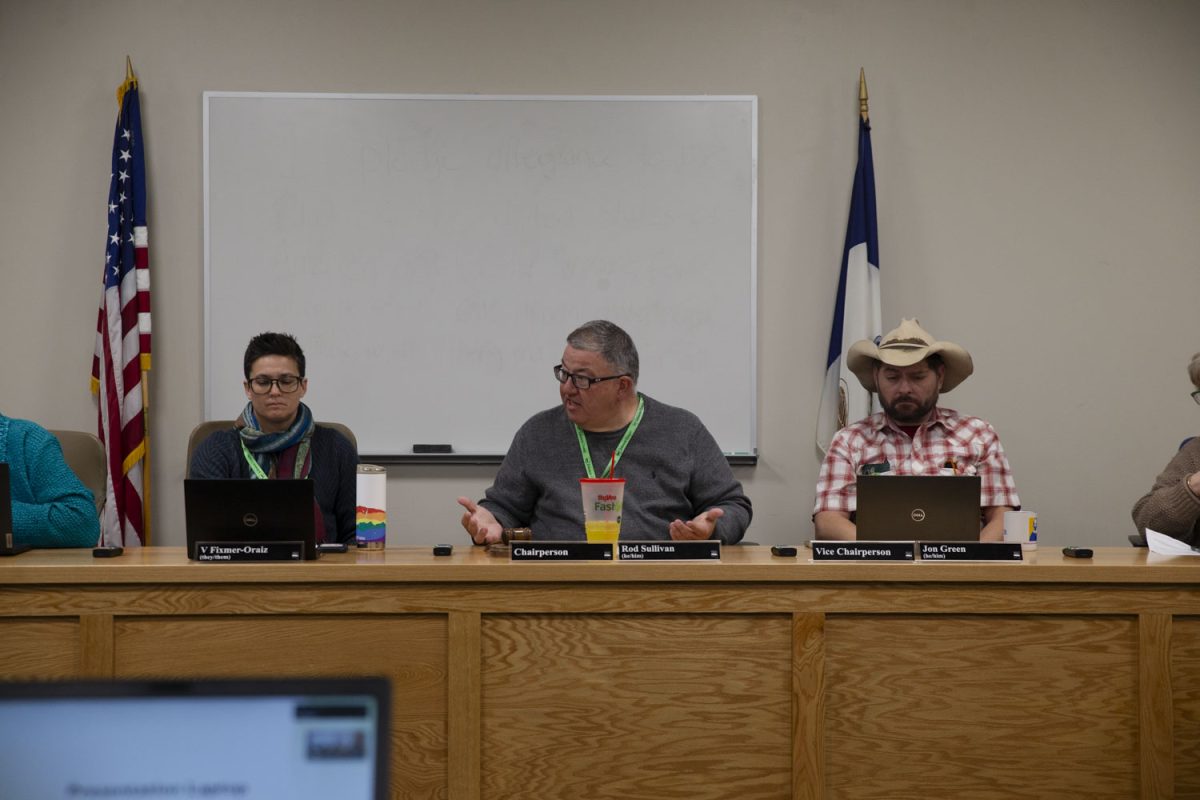Johnson County pushes for increase in water quality by implementing a soil-compost project.
By Madeleine Neal
In addition to renewable energy projects in Johnson County, officials have now focused on water quality through soil compost.
Kate Giannini, the Johnson County Soil and Water Conservation specialist in the Planning, Development, and Sustainability Department, said it was an “excellent” time to propose soil-quality restoration after the recent solar-array project at the administration building. Both plans are ongoing.
The project is near the administration building on South Dubuque Street. The site, formerly the National Guard armory, was renovated to serve as the employee parking lot, a green space, and a bio-retention cell, which Giannini defined as an urban conservation best-management practice.
Since then, she said, the space was left with very low soil quality because it was previously a site of a building.
The department took the idea to the county Board of Supervisors, and it was well received, she said. The supervisors are also committed to green and stormwater initiatives, she said.
In 2013, the supervisors voted in favor of creating specific plans on county sites as a means to more effectively manage water quality and quantity.
Giannini said the project is based on method seven of the Soil Quality Restoration in the Iowa Stormwater Management Manual, which requires applying a 2-inch layer of compost and deep tilling the compost into the soil.
She said this will help decompact the soil, and the compost will assist in building organic matter and better soil health.
To measure the effectiveness, the county conducted a soil analysis prior to the project, and it will conduct one next year to analyze the compost’s impact.
“We are committed to managing our runoff so we can provide better water quality and reduce the water quantity to our nearby water bodies,” Giannini said.
The site drains into Ralston Creek, which eventually drains into the Iowa River.
“We all live in a watershed,” she said. “And if we collaborate, urban and rural, we can take care of our natural resources.”
Becky Soglin, the department’s sustainability coordinator, said such projects are continuous in the department.
“At Johnson County, we’re increasingly finding ways to bring together different efforts to help reduce the causes and effects of climate change,” she wrote in an email to The Daily Iowan. “Soil-quality-restoration projects aren’t typically part of solar-array ground-mount projects, but we’re excited to bring these two efforts together.”
Soglin said officials expect the low-grow grass around and under the solar arrays to reduce the amount of time county facilities staff will need to take care of the lawn. With less mowing, she said, there should fewer greenhouse gases emitted.
“Johnson County wants to lead by example,” she wrote in the email. “By doing our part for our buildings located in Iowa City, we hope to help the city of Iowa City meet its sustainability goals.”
Department Director Josh Busard said the county wants to take the lead on such projects.
“Johnson County is looking to set an example,” he wrote in an email. “[To] be a model for other governmental entities, businesses, and citizens who are considering solar options.”










